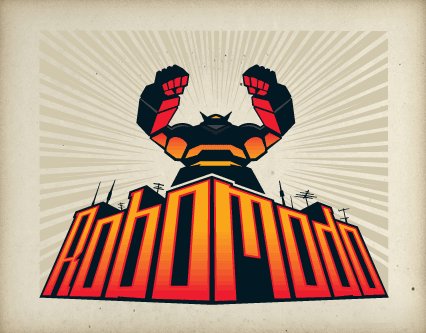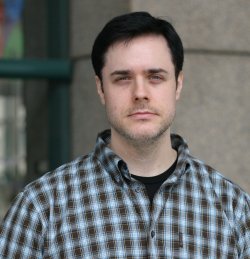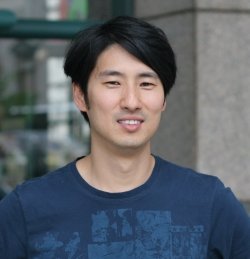Q&A: Robomodo rises from EA Chicago scrapheap
Fight Night alums and cofounders Joshua Tsui and David Michicich talk about founding a new studio and starting over as an indie shop--working on a major Activision IP.
The more things change for Robomodo's Joshua Tsui and Dave Michicich, the more they stay the same.

Though the pair have cycled through numerous employers in well over a decade, they repeatedly find themselves working together. Both were employed by Midway on the Mortal Kombat series in the mid-'90s, then broke off to form the indie shop Studio Gigante. After producing a pair of Xbox games (Tao Feng: Fist of the Lotus and Wrestlemania 21), Tsui and Michicich jumped to EA Chicago to work on Fight Night Round 3.
With the closing of EA Chicago last November, Tsui and Michicich have decided to give the indie development route a second shot. In January the pair joined with three other partners to found Robomodo and brought over dozens of ex-EA Chicago personnel. Now at a headcount of 35 and growing (check the studio's Web site for job openings), the Chicago-based Robomodo will start out developing games in established franchises on multiple platforms, with a goal of eventually working on their own intellectual property (IP).
For its first project, Robomodo is "working on a high-profile extreme sports title for Activision Blizzard," according to the studio's Web site. The title hasn't been named yet, but Robomodo touts its employees' "substantial experience working together on building and reinvigorating AAA titles."

Recently, Tsui and Michicich took some time to answer GameSpot's questions about the new operation, and what they're going to do differently on their second time around in the world of independent game development.
GameSpot: You used to be an internal developer for the world's largest third-party publisher. Now you're an external developer for what has since become the world's largest third-party publisher, albeit a different company. In practical terms, how does that change the way you go about making games?
Joshua Tsui: It's interesting. When we were at EA Chicago, a lot of the feel of that studio was like an independent studio. Before it was officially EA Chicago, it was New FX, and a lot of the personality of the studio stayed the same even when it became an official EA studio. We'd worked as an independent before that so a lot of the same processes were in place. You still have to report to corporate management, external people, and things like that.
GS: After EA shuttered the Chicago studio, did you have any hesitation about hopping back into business with a publisher that big?

JT: Not at all. In this group, we always want to make AAA titles for a large publisher. When we got the group together for Robomodo, there was no question. It's not that there's anything wrong with smaller projects, but we're very focused on working for whoever the big wigs are--for lack of a better term--and making AAA games.
Dave Michicich: Josh and I worked at Studio Gigante before and a lot of that team walked over to EA Chicago. And a lot of this team, 27 of us, walked over to form Robomodo. It took a long time to put that team together, and we looked at it as an opportunity to keep a strong team together.
GS: When you left Midway, you founded Studio Gigante, which developed Tao Feng and Wrestlemania 21 on Xbox before shutting down. What happened to the studio, and how will you prevent the same thing happening to Robomodo?
JT: There were a combination of things [with Studio Gigante], but as a business decision, you need to know when is a good time to keep on continuing with something and when is a good time to look at doing some other things. We had this great opportunity to work on Fight Night at around that same time and the stars kind of aligned. It was part business decision and part looking out on the horizon. It was a great opportunity to move over a huge chunk of our team to EA Chicago and work on Fight Night Round 3.
DM: That was an opportunity to work on a platform-defining, next-gen title. Fight Night Round 3 was just an amazing project to work on.
GS: Between Mortal Kombat, Tao Feng, and EA Chicago games like Fight Night, your team has considerable experience creating fighting games. Is it a genre you plan to specialize in at Robomodo?
JT: It's definitely a genre a lot of us like to play and develop for, so it's definitely a possibility. We don't rule out any type of genre that we enjoy playing.
GS: There have been reports that the game you're developing for Activision is the revamped Tony Hawk game. Any comment?
JT: I can't really comment on anything that we're working on just being under a [non-disclosure agreement] with Activision.
GS: One of the studio's stated longer-term goals is to work on its own IP. How difficult is that goal for an independent startup developer?
JT: To do an original IP is very difficult, especially when you're working with a large publisher. Original IPs are a big risk, so it's really important for Robomodo to get into a very good relationship with a publisher like Activision, work on various games to get their trust, and then start developing IPs with them. But it's very important to us that we gain the trust and the publisher feels very comfortable giving us free reign to do original IPs.
GS: Would you be fine working on new IP if the publisher still owned it. Would that satisfy your goal?
JT: Most definitely. Obviously it has to be something that we're interested in. It can't just be anything, but that's definitely within what we want to do.
GS: The statement in your PR says you're focused on encouraging innovation while maintaining proper management oversight. I'm sure every studio wants to do both those things, but what are some specific ways you'll accomplish it?
DM: With Activision, we're fortunate they have strategic alliances and central services. We want to make use of those and that's one reason to partner with Activision; we don't want to constantly be reinventing the wheel. If we do create tools or engine systems, we need to be very conscious to justify the return to our investment.
GS: Analysts have been debating whether or not this is a recession-proof industry for months now. As a startup coming onto the scene as the financial crisis was developing, has the economy significantly affected Robomodo? Are publishers more gun-shy about working with third parties now?
JT: We haven't noticed anything. Nothing, really.
DM: It might be a by-product of just being in the entertainment industry in general. For whatever reason, this industry doesn't get hit that bad, or that noticeable.
Got a news tip or want to contact us directly? Email news@gamespot.com
Join the conversation